Shock crash test result for Mitsubishi Express van
A household brand has been slapped with the first zero-star review by Australian crash testing organisation, suggesting a “high risk of injury” in a crash.
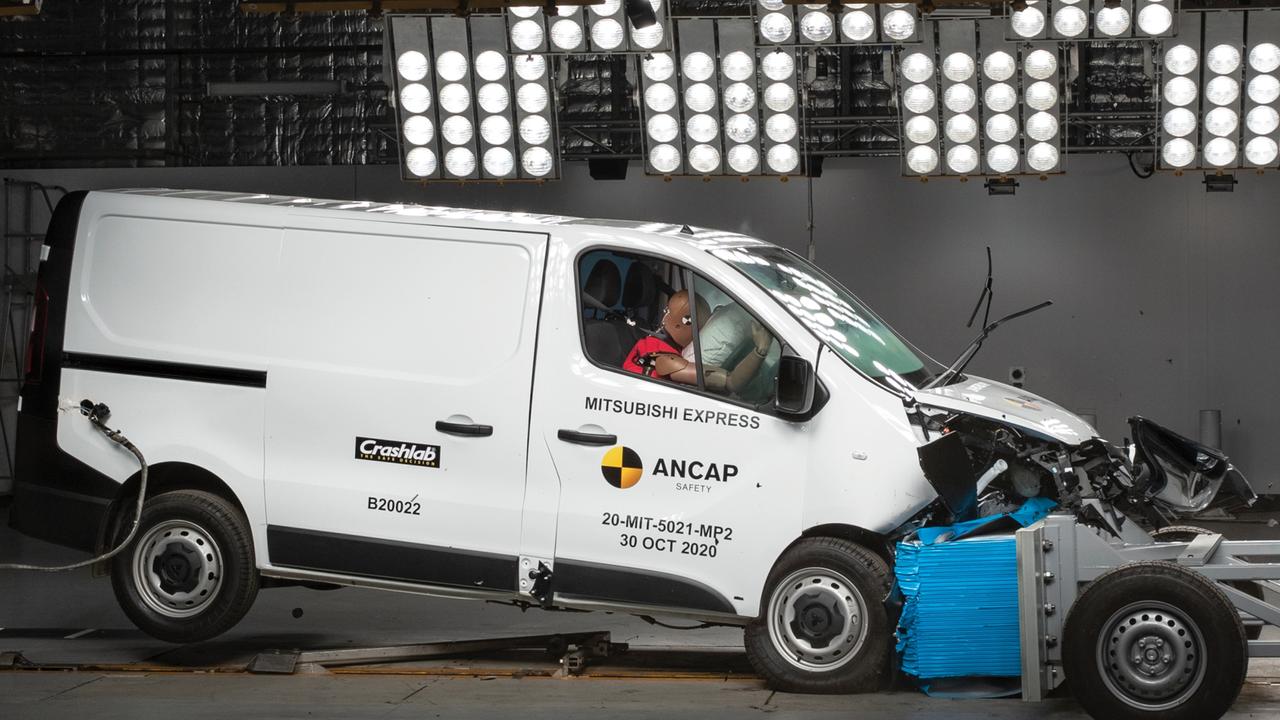
Mitsubishi says it has no plans to stop sales of the first car to receive a zero-star safety score in Australia.
The Australasian New Car Assessment Program (ANCAP) responsible for independent crash tests of new vehicles says the Mitsubishi Express van is the first car to fail to score a single star in its local test program.
The result could rule the van out of contention for corporate fleets increasingly focused on strong safety scores, prompting the automotive industry to question ANCAP’s approach.
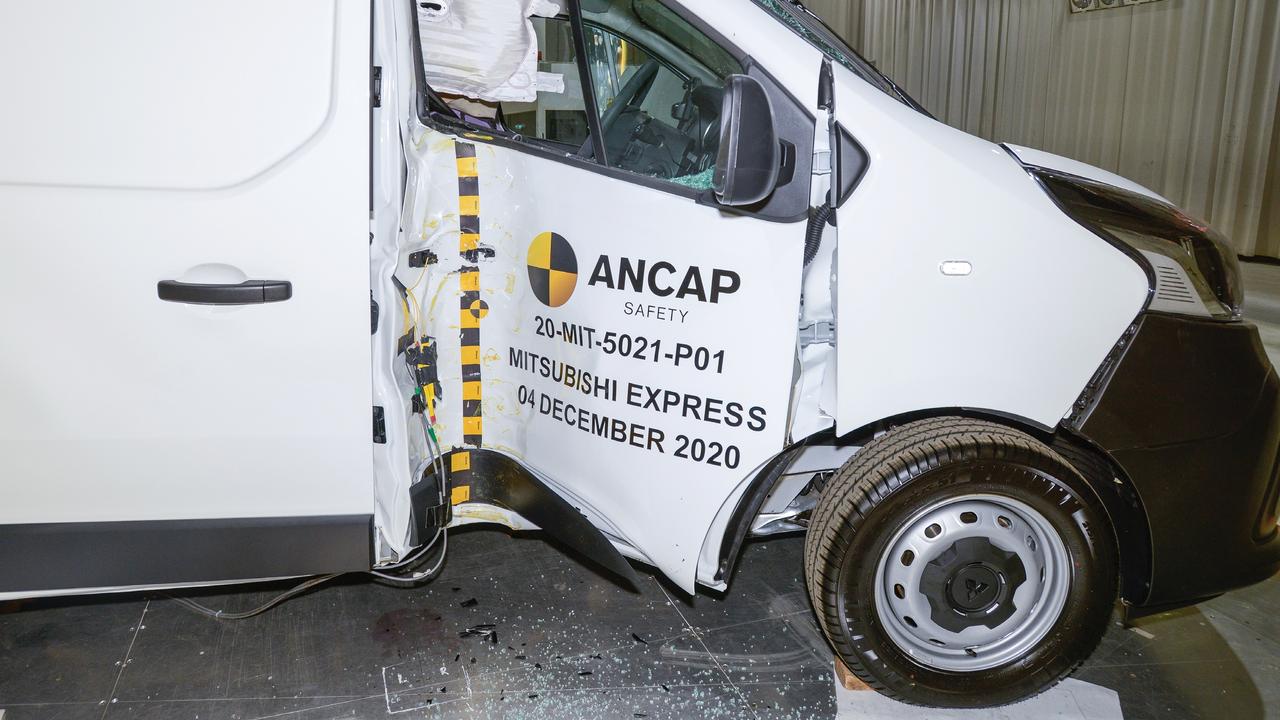
Having dropped the previous model from its range in 2013 following safety concerns, Mitsubishi reintroduced the Express in 2020 when it joined Nissan and Renault to become one of the world’s largest car companies.
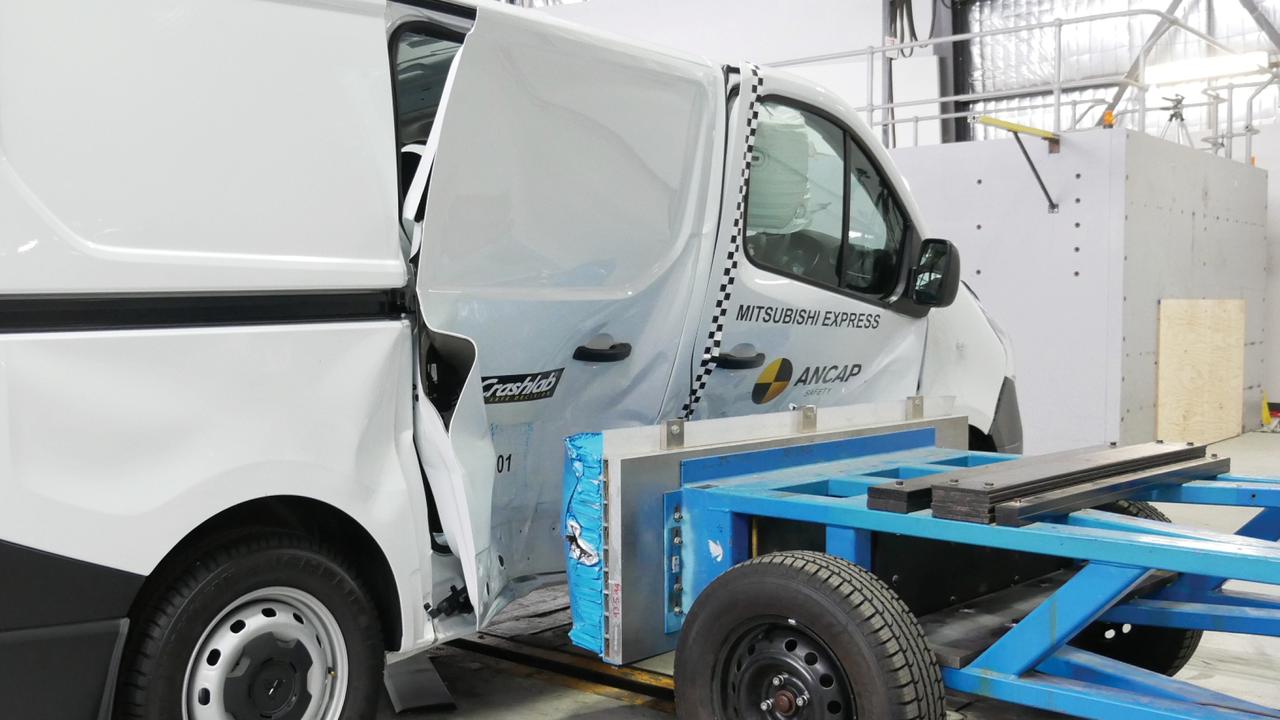
Though the Express is new to showrooms, it represents a reworked version of Renault’s Trafic van, a vehicle that misses out on modern technology found in rivals such as the five-star Toyota HiAce.
A passenger-oriented people mover version of Renault’s Trafic earned a three-star Euro NCAP score in 2015. ANCAP says that car’s score does not apply to the trade-ready Mitsubishi.
The Japanese company says its van was designed in accordance with 2015 test protocols.
“There has been significant movement in the application of driver assistance technologies since that time, which has been reflected in the new NCAP protocols against which this van has been tested,” Mitsubishi says.
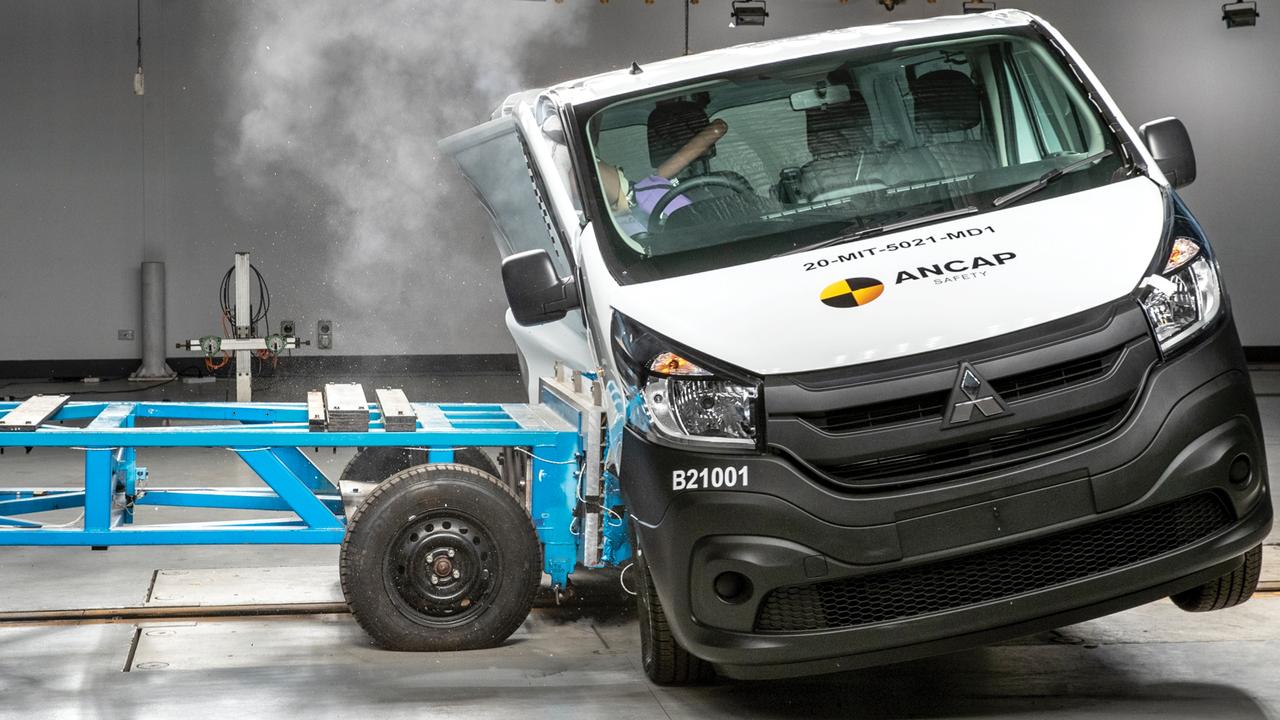
“The Express meets all Australian Design Rules (ADR) standards for vans, and the results of the crash testing by ANCAP indicates a good level of occupant protection.”
The safety body’s decision to test the car is somewhat controversial within the car industry, as the Mitsubishi’s lack of driver support systems such as auto emergency braking meant ANCAP says it was “unable to qualify for a rating higher than zero”.
The Federal Chamber of Automotive Industries, a collective body for car makers in Australia, questioned ANCAP’s motive for testing the car.
FCAI chief executive Tony Weber says ANCAP pursued headlines rather than a consistent approach to safety assessment.
“Why is ANCAP spending potentially up to $500,000, which includes taxpayer dollars, to undertake a test on a six-year-old vehicle that has already been assessed by its sister organisation Euro NCAP in 2015?” Weber says.
“It makes no sense, can send a confused message to Australian car buyers and is not the best use of taxpayer funds.”
The safety body pressed on with a full suite of smashes knowing the Mitsubishi had no chance of returning a strong score.
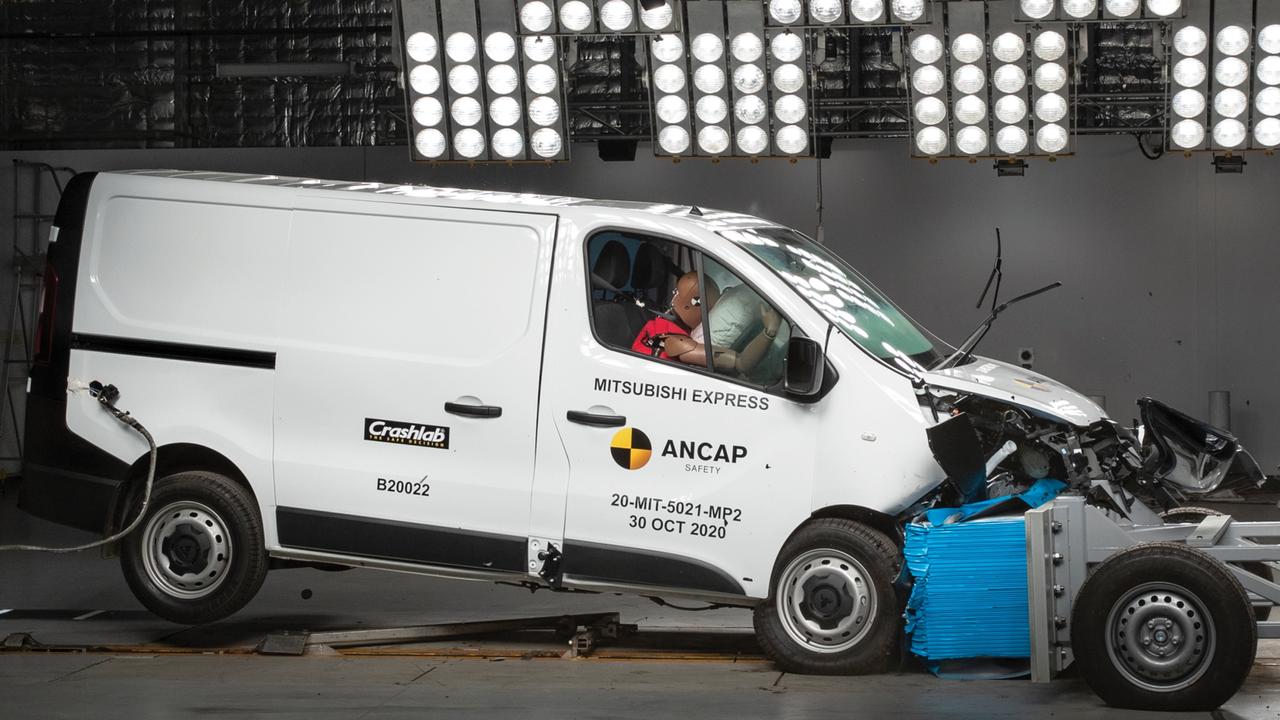
ANCAP says the Express poses a “high risk of neck injury” and “notable risk of serious injury to the chest of the driver”, returning “marginal” results in laboratory tests.
Carla Hoorweg, chief executive of ANCAP, says the Express’ poor result “sends a clear signal to manufacturers and their global parent companies that safety must be prioritised in all segments offered to the Australasian market”.
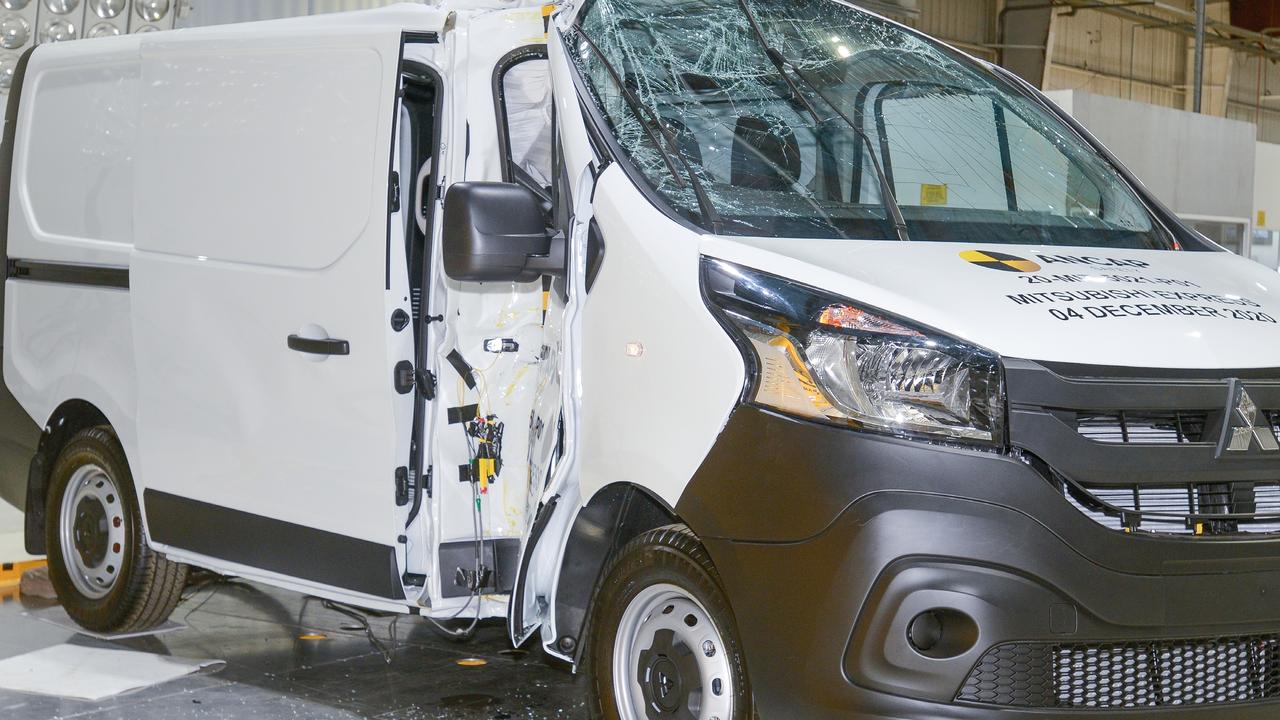
“We know Mitsubishi can deliver vehicles with high levels of overall safety and a wide range of modern safety technologies and we encourage them to accelerate the introduction of these features into their van product,” she says.
Mr Weber three-star and zero-star ratings for the mechanically similar Renault and Nissan were difficult for consumers to understand.
“The Australian vehicle buyer will understandably be confused at the two different ratings for essentially the same vehicle,” he says.
“It serves no purpose for the customer and it serves no purpose to the industry.”
Most other Mitsubishis, including the latest Triton ute and upcoming Outlander SUV, are loaded with class-leading safety technology.



